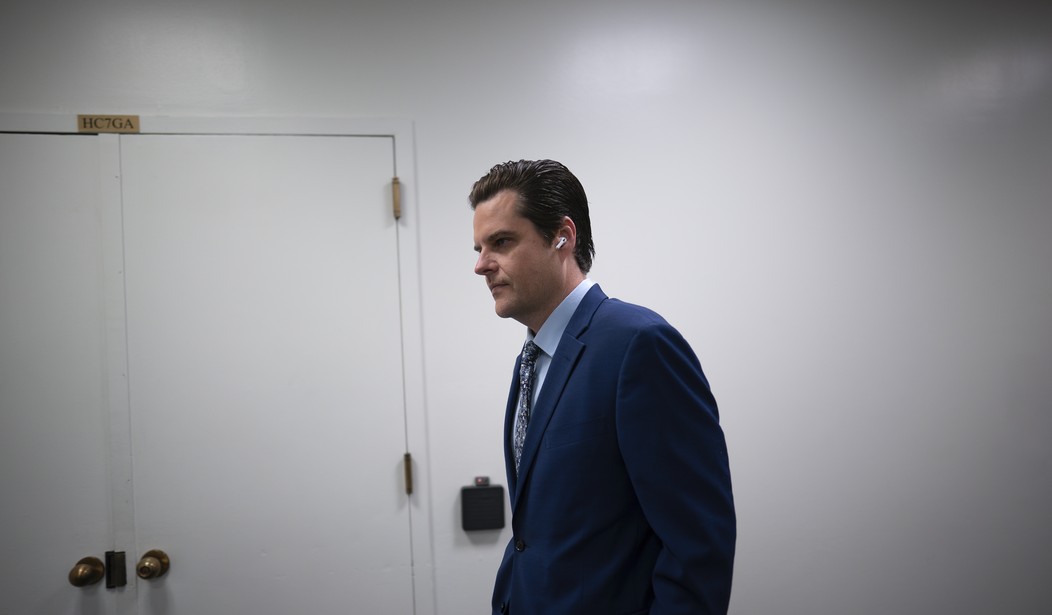The current debate over funding the federal government has already had an unexpected benefit. It establishes beyond any doubt that the country is ruled by a “uniparty,” which is beholden to influential special interest groups and views the public mainly, or even exclusively, as a source of money and power.
The 45-day stopgap bill passed by both chambers of Congress on Saturday includes two crucial elements that Republican budget hardliners wanted: a short timeframe that requires Congress to pass individual spending bills instead of a long-lasting continuing resolution (CR), and no additional funding for the war in Ukraine. The bill did not include new funding for border security, but 45 days of alleged border control measures would have been nothing but a joke anyway.
Budget hardliners such as Rep. Byron Donalds (R-FL) expressed anger over the compromise bill. “I think this is a terrible deal for the American people,” said Donalds, according to Fox News. Fellow hardliner Matt Gaetz (R-FL) led an effort to get Kevin McCarthy (R-CA) removed from his position as speaker.
Those reactions are good news, as they represent a spirit of tenacity uncharacteristic of Republicans in recent years. The hardliners see this small victory as being not nearly enough, as indeed it is not, and they are resolved to force more concessions from the Democrats—and, perhaps even more importantly, from their own party members.
Although the press has been concentrating on the thrilling conflicts within the Republican caucus, the real story here is the threat to the uniparty. The pretense of bipartisanship is the necessary fiction the uniparty hides behind, with Republicans always giving in to Democrats’ demands.
That is bipartisanship: radical policies with conservative backing. It is a uniparty in two-party disguise. The mainstream Republicans voting in concert with the Democrats in a Republican-controlled legislative chamber demonstrate that bipartisanship means Republican submission and that there is only one party in control.
Recommended
The House budget hardliners, by contrast, have been sticking to principle, pressing for partisan legislation in support of an “America First” agenda that includes measures for border security, a steadfast refusal to send any more money to Ukraine, and a 30 percent cut in federal spending. They are refusing to compromise on these things, which are in stark opposition to the agenda of President Joe Biden and the Democrats. In short, the hardliners are acting not as conservatives but as reformers.
These Republican reformers are replicating the strategy Democrats have successfully deployed for decades. The far left of the Democrat Party continually drags the rest of the party toward them while always moving further left themselves, and the Republicans always give in on legislation once the Democrats agree on a plan. That process has been reversed in the present case. The budget hardliners dragged the GOP caucus to the right, and the Democrats gave in—even if only on a few items and only for 45 days.
It counts as progress whenever the big spenders are forced to give up anything.
The press will blame the budget hardliners when Congress reaches the inevitable legislative impasse next month. However, preemptive surrender to a measure agreeable to the Democrats would not have averted bad press for the Republicans and never has done so. The Republicans are damned by the press whatever they do. In the House, at present, they are setting themselves up to be damned for doing right, which is much better than being damned for doing wrong.
If this nation is ever going to reverse the current slide into disaster, the Republicans must start acting like Democrats, as the hardliners are now forcing the party to do. I see that as progress.
The short-term deal is certainly a disappointment in policy terms; it does not do anything other than temporarily thwart some items on the Democrat wish list. The change in the process and the relationship between the two political parties, however, is far more important for the long term than the specifics of a bill that will last for only 45 days.
Regardless of the ultimate outcome of this political battle over the budget, the shutdown conflict is undermining the foundations of the uniparty because a small group of Republicans has finally decided to act as reformers instead of conservatives.
S. T. Karnick is a senior fellow and director of publications for The Heartland Institute, where he edits Heartland Daily News and writes the Life, Liberty, Property e-newsletter

























Join the conversation as a VIP Member